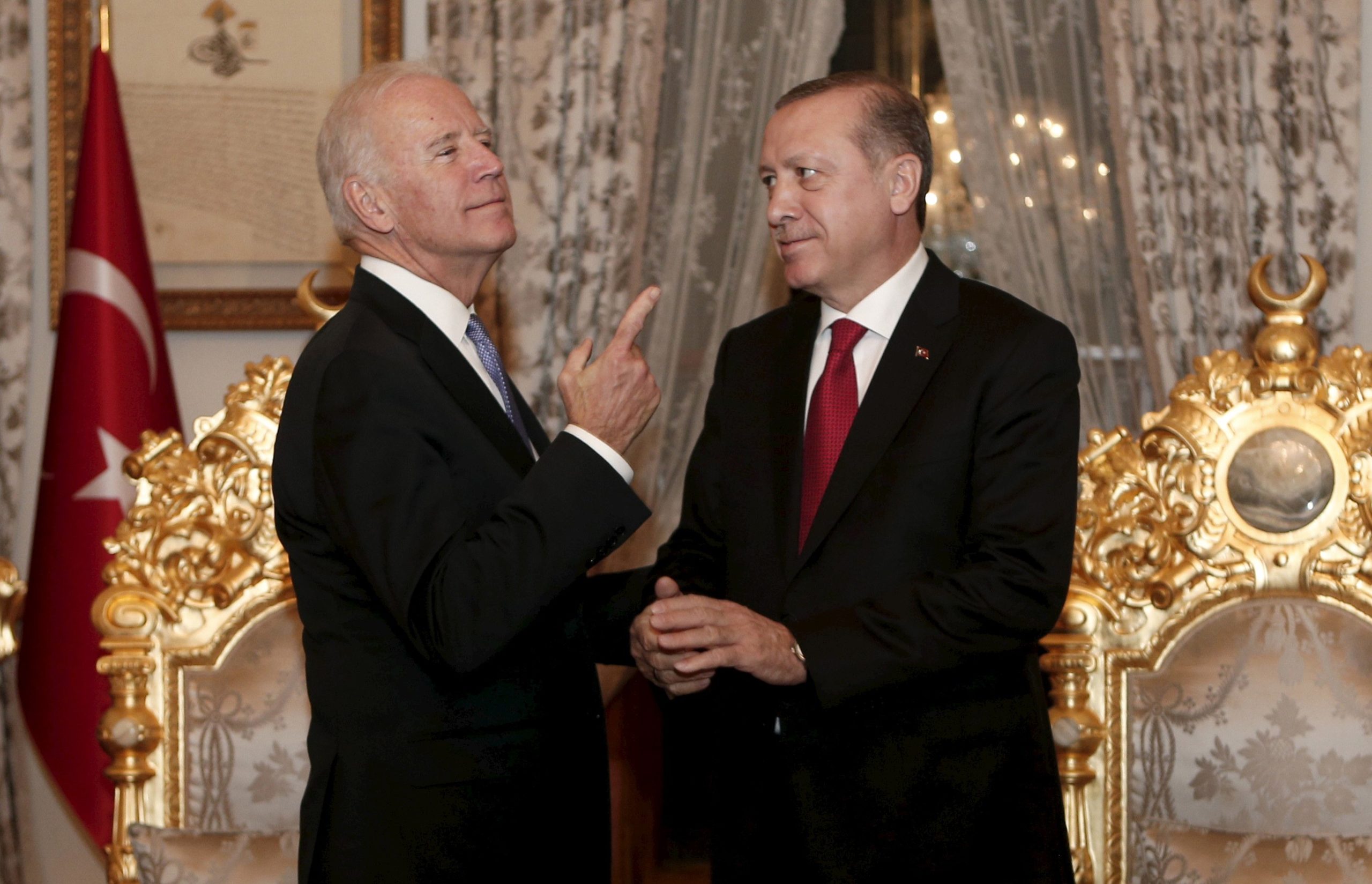“Stop Erdogan,” a huge billboard in New York’s Times Square demands. The sign is sponsored by a group called Advocates of Silenced Turkey, whose members include lawyers, judges, journalists and intellectuals, among them some whose relatives are imprisoned in Turkey for belonging to the movement headed by the exiled preacher Fethullah Gulen or for being critical of Turkish President Recep Tayyip Erdogan or for insulting him.
The billboard is part of an effort to enlist support from Turkish opposition activists living in the United States, from members of organizations representing minorities in Turkey, such as the Armenians and the Kurds, as well as from Gulen’s movement who are encouraged by the new winds blowing at the White House. The activists have gotten some 180 members of Congress to sign onto a letter to President Joe Biden demanding that the suppression of human rights in Turkey be a top priority for the Biden administration and that the administration demand the immediate release of political prisoners in Turkey.
Biden doesn’t need encouragement from letters from members of Congress. The human rights issue in general and in Turkey and Saudi Arabia in particular have become an inseparable part of his diplomatic agenda. The administration’s release of an intelligence report on the killing of Saudi journalist Jamal Khashoggi, which places direct responsibility for the crime upon Saudi Crown Prince Mohammed bin Salman, made it clear that the administration does not intend to turn a blind eye or treat crimes in the area of human rights leniently. For the time being, Biden has decided not to directly punish Prince Mohammed, but nor has he so far honored him with a phone call.- Advertisment –
Erdogan is also waiting for Biden’s call, and if he was wondering how long he would have to wait, he got a somewhat caustic answer last week from White House spokeswoman Jen Psaki, who said Biden would make the call “at some point.”
“Certainly the president has many world leaders he still needs to call, and he will venture to do that in the coming weeks and months,” Psaki said. Weeks? Months? Will Erdogan, the president of one of the most important powers in the Middle East, find himself grouped with leaders of Third World countries whose wait for that call will be a long one?
Over the past four years, Erdogan was able to deflect pressure from European Union countries, branding them supporters of terrorism (for permitting Kurdish organizations to operate on their soil) and accusing them of hypocrisy and of a failure to lend assistance to a fellow NATO member.- Advertisment –
For those four years, he had President Donald Trump at his side and behind him, patting the Turkish president on the back and viewing him as a fitting partner in their animosity towards Europe. It was only when American citizens were arrested in Turkey that Trump disassociated himself from Erdogan and unhesitatingly imposed sanctions on Turkey. Turkish political prisoners and detainees didn’t interest Trump, particularly not journalists or representatives of human rights groups.
Biden is expected to take a different approach, at least when it comes to political prisoners who have become a focus of international interest. One of them is the journalist Mehmet Baransu, who this month marks six years in jail on the usual allegations of supporting terrorism against government institutions and intent to undermine the state’s foundations. He has been sentenced to 19 years on some of the charges and if he is found guilty of other “offenses,” he could be spending 36 years behind bars..
Baransu revealed documents showing that in 2004, the Turkish army and Erdogan’s Justice and Development Party planned to destroy Gulen’s movement. As a senior journalist for the newspaper Taraf, Baransu also reported to the Turkish public that as a result of faulty intelligence reports, in 2011, the Turkish air force bombed the Kurdish Turkish village of Uludere, killing 34 civilians. Another report revealed that a major rice importer, Mahmut Aslan, a close associate of Erdogan, had imported genetically engineered Chinese rice to Turkey that had been banned for import into the United States.- Advertisment –
Initially Baransu had been the darling of the Turkish government. That was when he reported on a scandal in 2003, shortly after the Justice and Development Party came to power. Several senior military officers had intended to create a particularly violent provocation by attacking two mosques and bringing down a Turkish airplane over the Aegean Sea and then blaming the Greeks. Their aim was to spark wide public anger that would provide a pretext for the army to stage a military coup, as it had in 1960, 1971 and 1980.
The report served Erdogan, who used it to purge the military of his opponents. Since then, however, Taraf has been targeted by Erdogan. Its former editor in chief, Ahmet Altan, is also in prison and will mark his 71st birthday behind bars.
The regime has shut down some 200 media outlets since the failed attempt to overthrow it in 2016, and according to the Turkish interior minister, Suleyman Soylu, there are 25,467 people associated with Gulen’s movement who are now in prison. There are also almost daily reports of new arrests and convictions of those accused of harming or attempting to harm state institutions.
Erdogan is now steeling himself for heavy pressure from Washington. Last week he announced an 11-point reform plan to be implemented over the next two years. The plan includes improvements to the justice system and the handling of investigations, the expansion of freedom of expression and special penalties to combat violence against women.
The plan still lacks details and will require the passage of legislation and perhaps also changes to the constitution. But if it is implemented, it could be an important step on the long road to reversing the damage that Erdogan inflicted on human rights in his country.
By: Zvi Bar’el
Source: Haaretz



